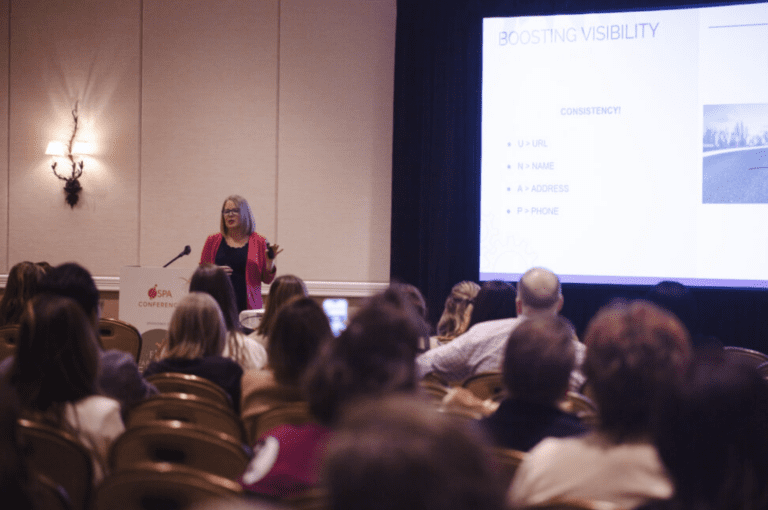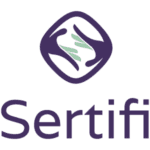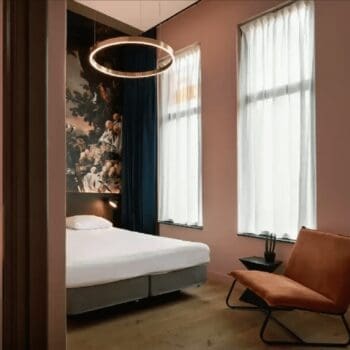 Inflation, labour issues, and rising cost to meet the needs of an increasingly tech-savvy and sophisticated guest journey. Is there anything more pressing on the minds of hoteliers, preventing them from having sleepless nights thinking about how to bring down their hotel`s cost and keep their business afloat? With an ever-increasing amount of cost-associated challenges in our industry, this topic couldn’t have been addressed at a better time.
Inflation, labour issues, and rising cost to meet the needs of an increasingly tech-savvy and sophisticated guest journey. Is there anything more pressing on the minds of hoteliers, preventing them from having sleepless nights thinking about how to bring down their hotel`s cost and keep their business afloat? With an ever-increasing amount of cost-associated challenges in our industry, this topic couldn’t have been addressed at a better time.
From our perspective as a hotel management company, we see both challenges as well as opportunities for hoteliers. The key is taking action in an adequate and timely manner, prioritising the right initiatives that truly make a difference. Cost can always be reduced, but how does it impact your day-to-day operations, and how does this reflect on your guest experience?
Want to know how to turn cost issues into a competitive advantage? Keep reading our article on how to approach this multi-faceted issue.
What is cost control in a hotel?
When we talk about cost control in the hotel industry, we typically refer to the management of expenses and the optimization of resources. By diligently managing costs, hotels can ensure profitability and financial sustainability. Cost control challenges can vary from hotel to hotel, depending on the market segment, location, and star classification, but most hotels face similar issues. As indicated by a recent study by Statista, hoteliers highlight the wider economic situation as the next biggest challenge (48%), followed by staff acquisition and retention (43%) and cost of staff (42)%.
Before digging further into why cost control is important for hotels, it is important to follow a structured approach with clearly defined steps that help to make well-informed decisions:
- Identifying expenses: All expenses incurred by the hotel are identified and categorized.
- Establishing benchmarks: Allows you to compare results vs. other similar hotels.
- Analysing expenses: Identifying outliers that require further review.
- Implementing cost-saving measures: Based on the analysis, cost-saving measures are implemented in the areas where costs can be reduced without affecting the quality of service.
- Monitoring expenses: The hotel’s expenses are continuously monitored to ensure that the cost-saving measures are effective.
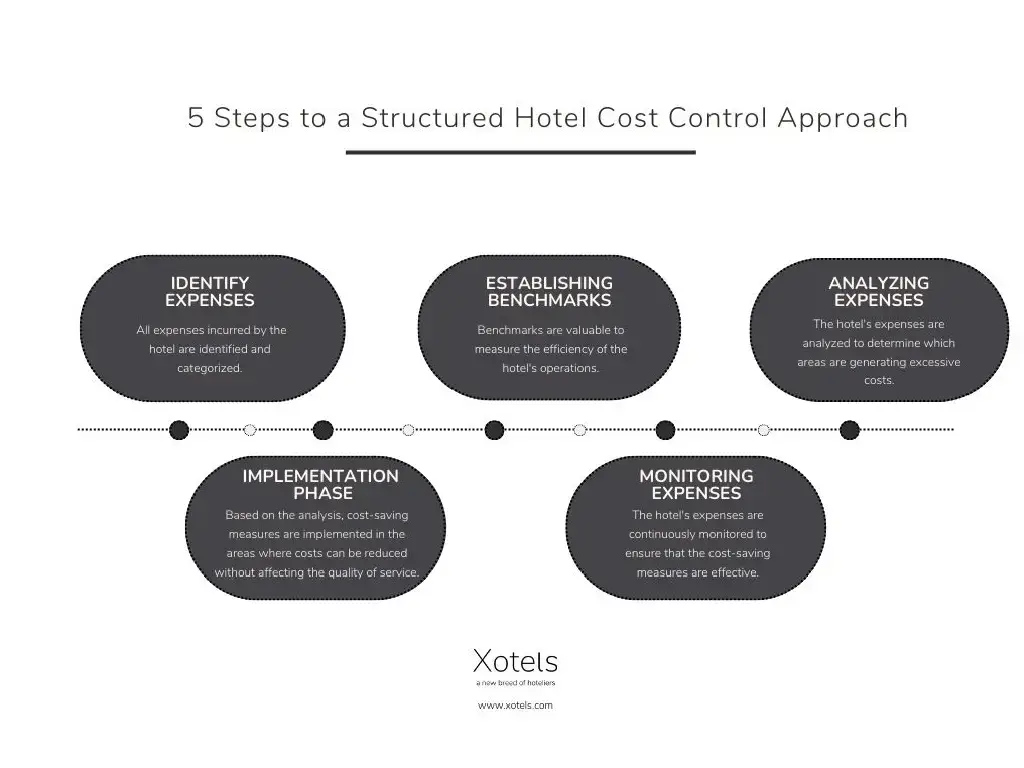
Why is cost control so important for hotels?
It´s clear that optimal control of cost helps hotels to run a profitable and sustainable business model. However, there are many aspects that should be considered to obtain the best results.
In summary, cost control is important in hotels for several reasons:
Profitability: Hotels are businesses and, like any other business, their ultimate goal is to make a profit. By controlling costs, hotels can reduce their expenses and increase their bottom line.
Competitive advantage: Cost control can also provide hotels with a competitive advantage. By reducing costs, hotels can offer better rates to guests, enabling them to better position themselves to budget-conscious travellers. This can help hotels attract more guests and compete more effectively with other hotels in the area.
Sustainability: When mitigating waste and conserving resources, hotels can reduce their environmental impact and operate in a more sustainable manner. This can be attractive to guests who are environmentally conscious and may choose to stay at hotels that prioritize sustainability.
Operational efficiency: By eliminating unnecessary expenses and streamlining processes, hotels can improve their operational efficiency and provide better service to guests.
Clearly, cost control is an important aspect of the hotel and hospitality management industry that enables hotels to gain a competitive edge over their competitors.
How can hotels cut costs? 10 strategies with examples to control cost:
1. Invest in the right tech stack
Hotels should invest in a comprehensive technology stack focused on managing guest data, streamlining operational processes, and reducing operating costs.
Unfortunately, many hotels are lagging behind when it comes to technology investment, despite accelerated digital growth seen in other industries (McKinsey). The reliance remains heavily on manual processes, outdated systems, and disjointed software solutions, which can lead to inefficiencies, errors, and poor guest experiences. This approach not only puts hotels at a disadvantage compared to other businesses that have embraced technology but also fails to cater to the ever-more digitally savvy traveller of today.
To step up their game, hotels should invest in technology by focusing on the right priorities, reducing operational inefficiencies and at the same time enhancing guest experiences. To give a few practical examples, hotels can focus on:
Front Office
A good technology stack can greatly reduce inefficiencies and speed up operational processes at a hotel front desk. By automating tasks such as check-in, check-out, room assignments, and payment processing, hotels can streamline their front desk operations, reduce wait times, and improve the overall guest experience.
For example, with a comprehensive Property Management System (PMS), hotels can manage all front desk operations from a single interface, reducing the need for manual data entry and the risk of errors. The right PMS can also automate processes such as room assignments and inventory management to help reduce the workload for front desk staff, giving them more time to focus on delivering exceptional guest service.
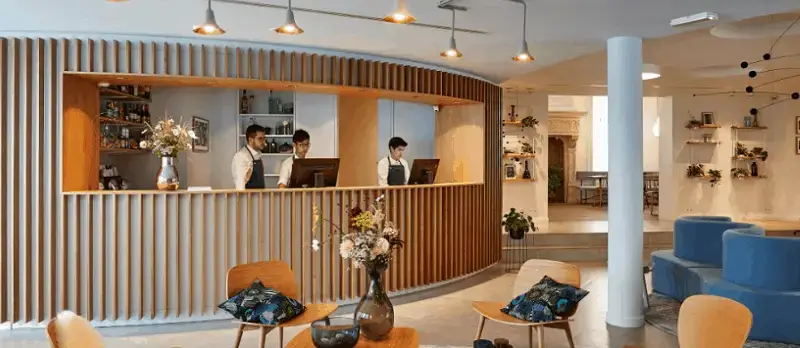
Marketing
By choosing the right marketing tools, such as a robust CRM system, hotels can capture and store guest data from all distribution channels. This data can include guest preferences, booking history, and guest feedback, which can be used to personalise the guest experience, offer targeted promotions, and improve guest loyalty (read more on the importance of capturing hotel guest data). Without this valuable data, hotels will struggle to make informed decisions which will directly result in lost revenue opportunities.
Housekeeping
Hotels that invest in tech to streamline housekeeping operations will benefit from automated tasks such as room assignments, cleaning schedules, and inventory management. All offer a major step to help hoteliers reduce labour costs, improve cleaning efficiency, and ensure that guest rooms are always ready on time.
2. Reinvent your marketing strategy
Hotels can reinvent their marketing strategy by adopting a data-first approach and building sophisticated tools to make better-informed decisions. With the right approach, hotels can get their fair share of direct revenue and own valuable guest data that provides insights to take their strategy to the next level.
By gathering and analysing guest data from multiple sources hotels can gain insights into guest behaviour and preferences. This in turn can be used to create targeted marketing campaigns that resonate with their audience and drive high-value bookings. Here are a few examples:
- Better loyalty programs: by tracking guest activity and preferences, hotels can offer personalised rewards such as discounts, free room upgrades, or access to exclusive events.
- Create better email marketing campaigns: by segmenting guests based on factors such as booking history, preferences, and interests, hotels can create personalised offers and promotions that are more likely to drive bookings.
- Get more feedback and turn it into actionable insights: hotels can send automated surveys and feedback forms to guests after their stay, helping to gather valuable feedback and insights into guest satisfaction, which can be used to improve the guest experience and drive loyalty.
- Upselling and cross-selling: track guest preferences and booking history, allowing hotels to offer personalised upsell and cross-sell offers. For example, a guest who previously used the spa during their stay can be targeted with a special offer to visit the spa or get a discount on a wellness treatment. That kind of personalization can make or break the success of an email campaign.
- Content management: maintaining momentum is key in marketing. To maintain that momentum, hotels can use tools to help build high-quality, relevant content faster by suggesting topics, keywords, and assisting with copywriting.
- Re-engagement campaigns: lastly, a CRM can be used to identify guests who have not booked in a while and create re-engagement campaigns to bring them back. By offering personalized promotions and incentives, hotels can entice past guests to return and book again. Make sure to offer something extra or unique, to really drive engagement and interest to make them visit again.

Important note: there are so many marketing initiatives that hotels can engage in. However, making sure to fish where the fish are and testing different strategies before going all-in on a specific idea is vital. Setting clear objectives and prioritising the highest drivers of revenue is the way to go.
With a laser-sharp focus on data and a clear understanding of their audience and goals, hotels can create marketing campaigns that are both effective and efficient, thereby reducing costs that would be spent on ineffective campaigns. At the core of everything is a CRM system, which will be necessary to sift through and manage large amounts of guest data, and will be key to maintaining momentum in your marketing actions by using automation to increase output.
3. Making full use of your hotel’s floor space
Re-inventing hotel spaces and making full use of each area to help generate additional revenue is a major trend in hospitality. By rethinking underutilised hotel spaces such as conference rooms or even entire floors that sometimes remain inactive, hotel owners can breathe new life into their operations. For example, think of turning your event or F&B spaces into a multi-functional workspace to create a thriving coworking environment, which remains a key audience to target as remote work will continue to rise.
This approach can lead to the creation of fresh revenue streams, heightened competitiveness, and a renewed brand appeal. The perfect opportunity to turn costly floor space into revenue-generating assets.
4. Outsourcing management and revenue management
By outsourcing hotel management and revenue management, hotels can save money and increase earnings generation. Outsourcing enables hotels to utilise experienced professionals who specialise in areas such as revenue generation, financial management, marketing, and improving operational performance. Such hotel experts are able to assist hotels in identifying areas in which to reduce costs and increase profits, ensuring a healthy bottom line.
Moreover, outsourcing allows hoteliers to focus on their core competencies, while experts handle hotel operations and management. This not only saves time, effort and money, but it makes sure every detail of the business is in optimal shape and receives the attention it deserves.
5. Hire and retain the right staff
As a hotel owner, you are no stranger to the fact that labour costs are one of the most significant operating expenses of your hotel business. Let’s take a look at some actions to take into consideration:
Cross-Train Staff
Cross-training your staff is not only an excellent way to ensure that you have a well-rounded team that can cover for each other when needed, but it can also help prevent having to call in additional temporary staff if someone calls in sick, which usually comes at a steep cost.
Incentivize your Staff
By providing incentives, you can motivate your staff to work harder and more efficiently, which can ultimately lead to cost savings.
Here are two examples of incentives you can provide:
- Introduce a digital tipping system: by introducing a digital tipping system, you can encourage guests to tip staff, which can give that extra boost of motivation.
- An upselling incentive for front desk agents: by providing incentives for front desk staff to upsell room upgrades or other services, you can increase your revenue without raising labour costs. For example, you can provide a bonus to front desk staff for every room upgrade they sell, or a percentage of the extra revenue generated by the upsell.
Improve Your Onboarding Process for New Employees
A well-structured and thorough onboarding process can help new staff members understand their roles and responsibilities and become more productive faster, ultimately reducing the amount of time and resources needed for training.
Implement these tips to improve your onboarding process:
- Have a plan in place: make sure that you have a plan in place for onboarding new employees. This plan should include a schedule of activities, such as orientation sessions, training, and introductions to key team members. Having a plan in place will help new employees feel more confident and comfortable in their roles and help them become more productive faster.
- Assign a mentor: assigning a mentor to new employees is an excellent way to help them integrate into the team more quickly. This person can help new employees navigate the workplace, answer questions, and provide feedback and support. Having a mentor can help new employees feel more comfortable in their roles and ultimately reduce the amount of time and resources needed for training.
- Provide clear expectations: make sure that new employees understand their roles and responsibilities and what is expected of them. This can include providing detailed job descriptions, performance metrics, and expectations for behaviour and conduct at your hotel. Providing clear expectations will help new employees understand what is expected of them and help them deliver better according tl what is expected of them.
6. PnL analysis: what goes in, and what goes out
A Profit and Loss statement (PnL) is a crucial report for hoteliers to analyse as it can help them cut costs and improve profitability. Any hotel business that wishes to achieve healthy financial results, should invest a good amount of time in building a well-structured profit and loss statement, and spend time reviewing it monthly with key stakeholders.
Looking at unusual expenses, scrutinizing purchases and reviewing each line item can reveal opportunities for cost reductions, including small savings that can accrue over time.
In addition, examining income streams is a great way to assist hoteliers in identifying opportunities to generate more revenue, such as where and when to implement strategies to drive ancillary revenue.
By critically analysing your PnL, hotels can ensure income and expenses are evenly distributed throughout the year, which is essential to prepare for low-season periods.
7. Leverage word of mouth
Hotels can leverage the power of word of mouth to reduce costs by increasing guest retention and decreasing marketing expenses. Happy guests who have had a positive experience are more likely to become repeat customers and recommend the hotel to their friends and family. This can lead to the following benefits:
- Reduced marketing costs (more reliance on organic referrals vs. paid advertising).
- Increased occupancy rates through better exposure
- Higher revenue per guest (especially if word of mouth has convinced guests to book add-ons, for example, a package or up-sell).
Additionally, word of mouth can also help hotels identify areas where they can improve their operations and reduce costs. By actively listening to guest feedback and addressing any issues, hotels can improve the overall guest experience and reduce the number of negative reviews or complaints.
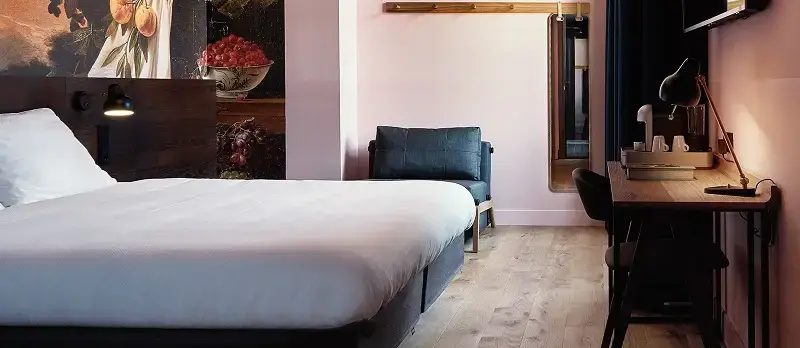
8. Negotiating lease deals
Lease negotiation can be an opportunity for hoteliers to review the existing terms and conditions of their current contracts and identify areas to get a better deal, such as rent calculations, charges, capital expenditures, and guarantee amounts.
However, every hotel is unique and therefore any negotiation should be diligently prepared for and overseen by a hotel asset manager to ensure the best possible outcome is achieved, thinking both long and short term.
9. Talk to your vendors
When contracts with vendors are due for renewal, hoteliers get the opportunity to renegotiate terms and get more favourable rates for supplies and contracts. However, preparation is key to being successful at renegotiating. Therefore, our hotel consultants recommend following these crucial steps:
- Research the current market prices for the products and services you require. And, request rates from other players in the market to compare your current rates. This information will help you understand the fair market value and what rates to expect;
- Be open to discussing terms such as payment schedules, and order minimums/bulk discount possibilities, as this can help you save costs in the long run;
- Building relationships with vendors can also help you negotiate better terms. Offering to give vendors referrals in exchange for better rates could be mutually beneficial.

10. Going green
Green initiatives at hotels not only have environmental benefits but can also lead to long-term cost savings. By simply reducing energy and water consumption, hotels can bring down their utility bills and save money on maintenance and repairs.
Aspects such as taking seasonality into account can help project possibilities to avoid excessive food waste or energy use. Thinking of closing specific areas or floors of the hotel during times of low demand, having a small seasonal menu that prevents over-preparation of unpopular dishes, and bringing down the number of perishable foods in storage could all help to have a significant impact on cost and sustainability.
Lastly, companies such as Too Good To Go offer hotel restaurants the opportunity to sell food items at a reduced cost in order to avoid food waste.
Final word
Cost-control measures are essential for hotels seeking to improve profitability and achieve success by reducing operating expenses. As a hotel management company, we always advise building out a comprehensive strategy including an impact analysis of cost-saving measures to guarantee guest satisfaction is not compromised.
Hope these cost-reduction strategies have given you the inspiration to turn your hotel into a more profitable business.




